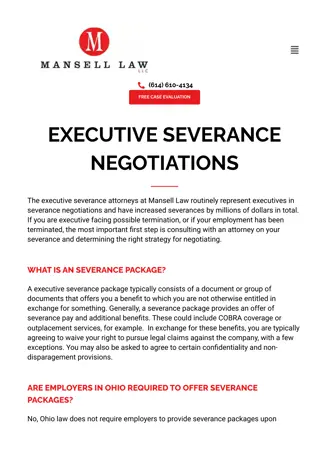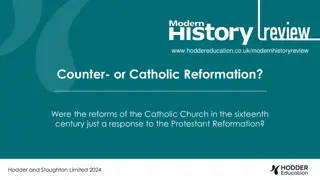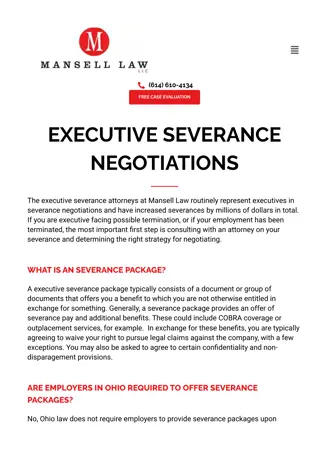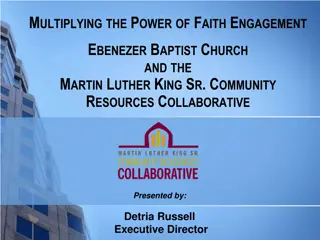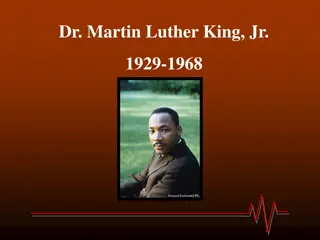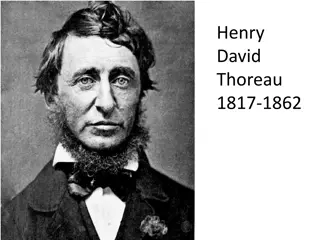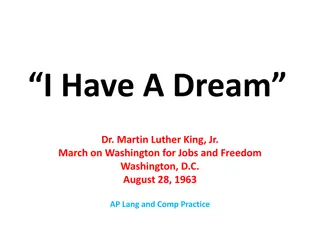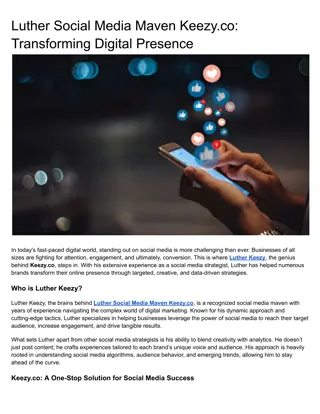Luther's Transformation: From Lawyer to Monk
Young Luther's unexpected encounter with a thunderstorm led to a life-altering decision to become a monk, diving into a path of deep dedication and spiritual evolution. Discover his journey from scholar and preacher to priesthood, highlighting pivotal moments and influences that shaped the course of history.
Download Presentation

Please find below an Image/Link to download the presentation.
The content on the website is provided AS IS for your information and personal use only. It may not be sold, licensed, or shared on other websites without obtaining consent from the author.If you encounter any issues during the download, it is possible that the publisher has removed the file from their server.
You are allowed to download the files provided on this website for personal or commercial use, subject to the condition that they are used lawfully. All files are the property of their respective owners.
The content on the website is provided AS IS for your information and personal use only. It may not be sold, licensed, or shared on other websites without obtaining consent from the author.
E N D
Presentation Transcript
Review Five editions of Novum Instrumentum were published from 1516-1535, but, starting with the second edition, its title was changed to what? Novum Testamentum. How many manuscripts did Erasmus use in compiling his first edition of his Greek text? Seven Erasmus only manuscript on the book of Revelation was missing the last page. How did he end up finishing the Greek text of Revelation? Translated the Latin Vulgate into Greek Name some well known early English translations of the Bible that were based on Erasmus Greek text. Tyndale's English Translation (1526) The Geneva Bible (1560) The King James Version (1611)
Review What is the Comma Johann and why did Erasmus refuse to include it in his Greek text at first? And why did he later include it? He refused to include it because no Greek manuscripts were found that included it. He later included it because someone came up with a dubious 16thcentury manuscript that contained it. Name the four major traditions that marked early Protestantism. Lutheran Reformed Anabaptist Anglican A papal bull in the Summer of 1520 referred to a wild boar in the vineyard ? Who was the wild boar ? Martin Luther
Luther Becomes a Monk https://store.faithink.com/collections/luther-resources
Luther Becomes a Monk Luther had every intention of becoming a lawyer until one day in 1505 he was caught in a thunderstorm while walking toward the village of Stotternheim. A bolt of lightning knocked him to the ground, and Luther, terrified, called out to Catholicism s patroness of miners, St. Anne, save me! And I ll become a monk. Much to his parents dismay, Luther kept the vow. Two weeks later, obsessed with guilt, he entered the Augustinian monastery at Erfurt and proved to be a dedicated monk. I kept the rule so strictly, he recalled years later, that I may say that if ever a monk got to heaven by his sheer monkery, it was I. If I had kept on any longer, I should have killed myself with vigils, prayers, reading, and other work. Shelley, Dr. Bruce L.. Church History in Plain Language: Fourth Edition (p. 248).
Luther Becomes a Monk The Augustinian order soon recognized young Luther as an outstanding scholar and preacher. He was ordained to the priesthood in 1507, and in 1508 became a junior lecturer at the new University in Wittenberg, founded in 1502 by Prince Frederick the Wise of Saxony. Here Luther gave lectures on the Sentences of Peter Lombard and the moral teaching of Aristotle. At this stage, Luther s spiritual guide was Johannes von Staupitz, vicar-general of the Augustinian friars in Saxony. Staupitz was professor of biblical studies at Wittenberg University, and a fervent disciple of Augustine of Hippo and his theology of God s sovereign, unconditional grace. Needham, Nick. 2,000 Years of Christ's Power Vol. 3: Renaissance and Reformation
Luther Becomes a Monk A sensitive and spiritually minded man with a clear, deep insight into other people s souls, Staupitz took Luther under his wing. Staupitz was Luther s confessor the one to whom Luther made his confessions of sin in order to receive absolution. Luther spent so long confessing, sometimes up to six hours, that Staupitz occasionally became exasperated. God is not angry with you, Staupitz once exclaimed, you are angry with God! Do you not know that God commands you to hope? This was an accurate perception: Luther was indeed angry with the God who demanded a perfection he could never give, and who condemned him for not giving it. Needham, Nick. 2,000 Years of Christ's Power Vol. 3: Renaissance and Reformation
Luther Becomes a Monk Staupitz tried to lead the tormented young friar to a self-abandoning trust in God s free and undeserved mercy, a mercy made visible and tangible in the wounds of the suffering Jesus. Luther testified of Staupitz, He was my first father in this teaching, and he gave birth to me in Christ. If Staupitz had not helped me, I would have been swallowed up in hell and left there. Staupitz who sent Luther off to Rome in 1511 with another friar, on important business for the Augustinian order. Needham, Nick. 2,000 Years of Christ's Power Vol. 3: Renaissance and Reformation
Luther Becomes a Monk The pilgrimage to holy Rome was profoundly disenchanting for Luther . He never forgot the cynical attitude to religion that he found there, or the obsession with money. He was later fond of repeating the Italian proverb, If there is a hell, Rome is built over it. It was Staupitz, too, who encouraged Luther to study for a doctorate in theology. Luther received his degree in 1512, and then took over from Staupitz as professor of biblical studies in Wittenberg Staupitz felt that in teaching others, Luther would find the answers to his own problems. Lecturing on the Psalms, Romans, Galatians, and Hebrews, Luther used the new learning of Renaissance humanism to interpret the Bible by the grammatical- historical method, breaking free from the methods and concerns of traditional scholastic theology. Needham, Nick. 2,000 Years of Christ's Power Vol. 3: Renaissance and Reformation
Luther Becomes a Monk Among the humanists who influenced Luther were: Jacques Lefevre d taples, whose commentary on the Psalms dazzled the German professor Reuchlin, from whose Rudiments of Hebrew Luther learned the language of the Old Testament. Through this humanist influence along with his biblical studies, Luther eventually came to detest scholasticism as a betrayal of the biblical message. He violently opposed the way that the schoolmen had blended Christianity with the philosophy of Aristotle. He had also, by this time, rejected the neo-Pelagian teachings of William of Ockham about salvation, and followed Staupitz in becoming a disciple of Augustine of Hippo From now to the end of his life, Luther was to be a wholehearted believer in Augustine s doctrine of the sovereign grace of God who chooses helpless sinners for salvation by His unmerited mercy. Needham, Nick. 2,000 Years of Christ's Power Vol. 3: Renaissance and Reformation
Luther Becomes a Monk As he was teaching through the Psalms, Luther became fascinated with the words of Christ from the cross: My God, my God, why have you forsaken me? (Psalm 22:1) Christ forsaken! How could our Lord be forsaken? Luther felt forsaken, but he was a sinner. Christ was not. The answer had to lie in Christ s identity with sinful humanity. Did Christ share mankind s estrangement from God in order to assume the punishment required of sin? A new and revolutionary picture of God began to develop in Luther s restless soul. Shelley, Dr. Bruce L.. Church History in Plain Language: Fourth Edition (p. 248).
Luther Becomes a Monk Finally in 1515 while pondering Paul s Letter to the Romans, Luther came upon the words, For in the gospel a righteousness from God is revealed, a righteousness that is by faith from first to last, just as it is written: The righteous will live by faith. (Romans 1:17 NIV) Here was his key to spiritual certainty. Luther later recalled: Night and day I pondered, until I saw the connection between the justice of God and the statement that the just shall live by his faith. Then I grasped that the justice of God is that righteousness by which through grace and sheer mercy God justifies us through faith. Thereupon I felt myself to be reborn and to have gone through open doors into paradise. Shelley, Dr. Bruce L.. Church History in Plain Language: Fourth Edition (p. 248).
Luther Becomes a Monk Luther saw it clearly now. Man is saved only by his faith in the merit of Christ s sacrifice. The cross alone can remove man s sin and save him from the grasp of the devil. Luther had come to his famous doctrine of justification by faith alone. He saw how sharply it clashed with the Roman church s doctrine of justification by faith and good works: the demonstration of faith through virtuous acts, acceptance of church dogma, and participation in church ritual. Shelley, Dr. Bruce L.. Church History in Plain Language: Fourth Edition (p. 248).
Luther Becomes a Monk Later, in a hymn that reflects his vigorous style, Luther described his spiritual journey from anxiety to conviction: In devil s dungeon chained I lay The pangs of death swept o er me. My sin devoured me night and day In which my mother bore me. My anguish ever grew more rife, I took no pleasure in my life And sin had made me crazy. Shelley, Dr. Bruce L.. Church History in Plain Language: Fourth Edition (p. 248).
Luther Becomes a Monk Later, in a hymn that reflects his vigorous style, Luther described his spiritual journey from anxiety to conviction: Thus spoke the Son, Hold thou to me, From now on thou wilt make it. I gave my very life for thee And for thee I will stake it. For I am thine and thou art mine, And where I am our lives entwine. The Old Fiend cannot shake it. Shelley, Dr. Bruce L.. Church History in Plain Language: Fourth Edition (p. 248).
Luther Becomes a Monk The implications of Luther s discovery were enormous. If salvation comes through faith in Christ alone, the intercession of priests is superfluous. Faith formed and nurtured by the Word of God, written and preached, requires no monks, no masses, and no prayers to the saints. The mediation of the Church of Rome crumbles into insignificance. Shelley, Dr. Bruce L.. Church History in Plain Language: Fourth Edition (p. 250).
Luthers Coworkers at Whittenburg https://www.insightoftheking.com/martin-luther-and-philip-melanchthon.html
Luthers Coworkers at Whittenburg Andreas Bodenstein von Carlstadt (1477-1541) Carlstadt was Wittenberg University s senior lecturer. A high-minded idealist singularly lacking in common sense, he soon went far beyond Luther and became a leading Radical Reformer. At this early stage, however, Carlstadt was completely in harmony with Luther. Nicholas von Amsdorf (1483-1565) Amsdorf was a famous scholastic theologian whom Luther had won over to more Augustinian views. In the wake of Luther s break with Rome, Amsdorf became a vigorous, fearless, narrow-minded Protestant Reformer, more zealously Lutheran than Luther himself. Needham, Nick. 2,000 Years of Christ's Power Vol. 3: Renaissance and Reformation
Luthers Coworkers at Whittenburg George Spalatin (1482-1545) Spalatin was not a university lecturer, but chaplain to Luther s prince, Frederick the Wise, and a warm supporter of Luther. All Luther s dealings with Frederick were through Spalatin as intermediary. Spalatin s influence over Frederick was instrumental in persuading the Saxon prince to back Luther in his coming conflict with the papacy. Philip Melanchthon (1497-1560) Melanchthon, who arrived at Wittenberg in 1518 at the age of twenty-one, was the nephew of Johannes Reuchlin. He was also a brilliant young Christian humanist in his own right; he had already published some thirty books by the time he went to Wittenberg. Needham, Nick. 2,000 Years of Christ's Power Vol. 3: Renaissance and Reformation
Luthers Coworkers at Whittenburg Philip Melanchthon (continued) Inspired by Erasmus s ideals for the renewal of society, Melanchthon was praised to the skies by Erasmus himself: Great God! [Erasmus cried], what expectations arise within us when we consider the young Philip Melanchthon! He is only a youngster, yet he has already achieved such eminence in both the Greek and Latin languages! What ability he displays in argument! How pure and stylish his words! What rare learning! How many books the lad has read! What tenderness and refinement in his extraordinary genius! Gentle, thoughtful, timid, and peace-loving, the young Melanchthon swiftly became Luther s most beloved friend and most trusted colleague. Needham, Nick. 2,000 Years of Christ's Power Vol. 3: Renaissance and Reformation
Luthers Coworkers at Whittenburg Under the guidance of Luther, Carlstadt, Amsdorf, and Melanchthon, and with Spalatin and Frederick as patrons, Wittenberg University became a flourishing center of Augustinian theology and preaching. The Protestant Reformation, the greatest religious movement since the rise of Islam, was led by a group of university professors. Needham, Nick. 2,000 Years of Christ's Power Vol. 3: Renaissance and Reformation
Luthers 95 Theses https://www.intellectualtakeout.org/article/5-causes-protestant-reformation-besides-indulgences/
Class Discussion Time https://www.weareteachers.com/moving-beyond-classroom-discussions/
*Class Discussion Time Luther, in a moment of fear, made a vow to God, that radically altered the course of his life. Luther s parents are said to have been dismayed that he kept this vow. And clearly, in Luther s case, his keeping of this vow ultimately benefitted him and eventually the whole world. The scriptures speak of the importance of keeping a vow made to God (e.g. Num. 30:2). But is there ever a time when, in the heat of the moment a person makes a foolish vow to God, that it would be best for them to not keep the vow? Have you ever made a vow to God in a moment of weakness and then later wished you hadn t done so? If so did you end up keeping the vow? Why or why not? Before coming to recognize God s total and gracious provision in Christ for his salvation, Luther struggled to find right standing before God through good works, failing miserably in the process. How does this compare with your conversion experience? Are there ways in which you relate to the path Luther took in coming to understand the Gospel? Are there ways in which your coming to Christ differs from the path Luther took? If so, how? Do you have a topic or question that you would like to see us to discuss?



